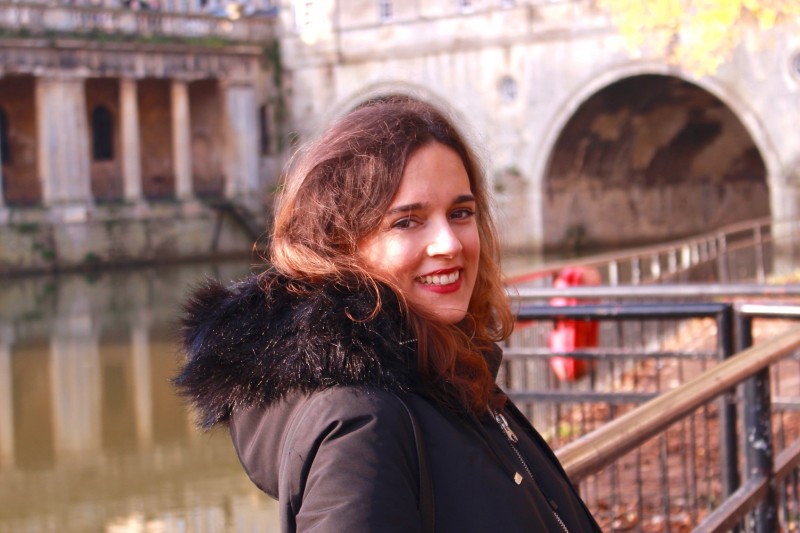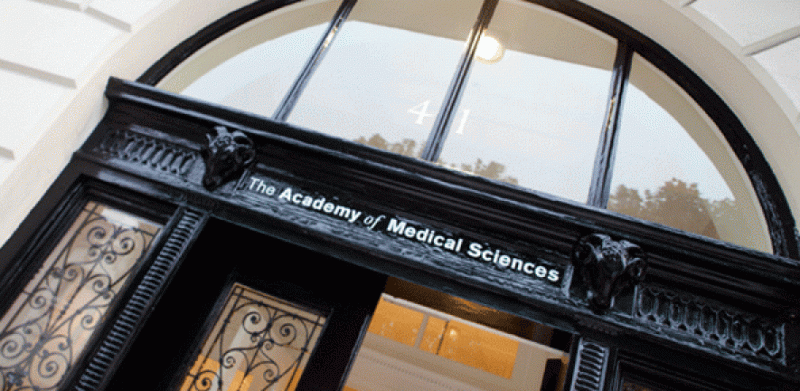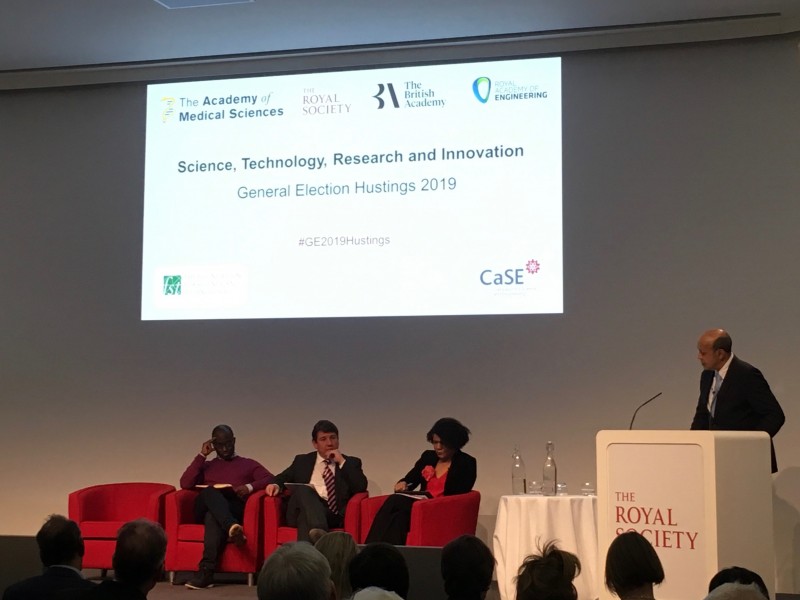By Sophie Arthur
February 14, 2020
Time to read: 6 minutes
We have a fantastic community of PhD students here at the MRC LMS. As part of their training, they all have the opportunity to apply for internships to complement their research and gain invaluable skills and insights into potential careers. Maria Pessoa, a member of our Metabolic Signalling group, applied for the MRC/UKRI Policy Internship Scheme and spent 3 months working with the team at the Academy of Medical Sciences. In this article, Maria shares more about that experience and the lessons she learnt.

From day one at the MRC London Institute of Medical Sciences (LMS) PhD programme, we were encouraged to be open to career opportunities outside of academia. This reality check was welcomed, since positions in research are limited and sacrifices sometimes have to be made, but most importantly, it made me realise that a PhD is an incredible training ground for many careers, within and outside of science.
With this encouragement to pursue a career that would suit me, rather than blindly following the academic path, I tried to stay aware of other roles where I could use the transferable skills I was learning in my PhD, combined with my love of healthcare and science. Speaking to friends and colleagues at the LMS, I found out about the Policy internship at the Academy of Medical Sciences, supported by the MRC, and how people who had done it highly recommended it. I had an interest in healthcare and how research can improve people’s lives, so this sounded like a great opportunity. I went on the Academy’s website to find out more, where their mission statement is “to advance biomedical and health research and its translation into benefits for society”, which confirmed for me that it was the right choice to apply. The application process itself was easy – writing a cover letter expressing why you want to do this internship, an article on a public health topic of your choice and your CV. In my case, I wrote about the food-insecurity and obesity paradox, which relates to my field of study, and it is a topic that shows a good picture of health inequalities and complexities of human behaviour. I was invited for an interview and was lucky to get offered the position the following year, when I was finished with the experiments for my PhD thesis.

From lab bench to Parliament
The work environment at the Academy was one of the most striking differences I noticed on my first week as an intern. Due to the nature of the work itself, large projects are done in collaboration, with constant feedback, where your work feels valued, but you are always learning and improving. I was involved in many different projects; organising global health policy workshops (such as those found here), attending external meetings to improve and advocate for the life sciences sector and research funding, going to Parliament for oral evidence sessions of the Science and Technology Committee, writing policy briefings about a range of topics where the Academy may be doing future work on, as well as networking at events and making contacts with potential future collaborators. The Academy represents over a thousand fellows who are elected for their exceptional contribution to medical sciences. This means that the issues we work on daily matter to anyone who is interested in excellent research and better health for the public in an evidence-based manner – which was one of the main things that appealed to me to do the internship in the first place. Additionally, they encourage interns to do mini-secondments, which meant I was able to shadow a global mental health consultant at Public Health England for a day – it was an incredibly insightful experience and a great opportunity to meet amazing people doing amazing work, such as the Every Mind Matters campaign.
One of my favourite tasks during my internship was to help organise the science hustings event before the General Election with the other National Academies, CaSE and FST. The purpose of this event was to scrutinise representatives of the main political parties on funding, research and development, and immigration after Brexit, that affects collaborations and mobility which are fundamental for high-quality research. There are many bumps and hurdles when organising an event such as this one, but it was brilliant to witness perseverance and teamwork coming through in the end. Interesting questions and comments from the audience were key to this event,, but also available through social media, given that it was being live streamed (you can still watch it here). I was very happy with the end result, since it allowed scientists, funders, policy people and the general public to evaluate the knowledge each party had on science and research and development, as well as what plans they held to ensure the UK remains a world-class leader in research after leaving the EU.

Another great aspect about the Academy of Medical Sciences is the staff. Everyone is incredibly friendly, welcoming and helpful, which actively creates a very positive work environment – I could not have hoped for better colleagues and mentors during these 3 months.
Reflecting on the need for researchers in science policy
Prior to the internship, I had very little knowledge of what science policy entailed, but the most surprising aspect to me was how valuable interpersonal skills are. Having the right contacts and building good relationships are incredibly important, and this can be applied to any career you choose. It’s important to highlight that even if you want to pursue an academic career, this policy internship can give you invaluable experience and knowledge on science policy matters, research funding and how to engage with policy makers on issues that directly affect the work you do. If you’re still in doubt, a very good piece regarding why researchers should do policy and how to engage can be found here, by Dr James Squires. But if you love science and are unsure that a career in research is for you, this is an amazing opportunity to expand your knowledge and gain many important skills that are relevant in multiple jobs. At the Academy, they value and welcome interns that want to stay in academia, so this will not hinder your application should you want to apply.